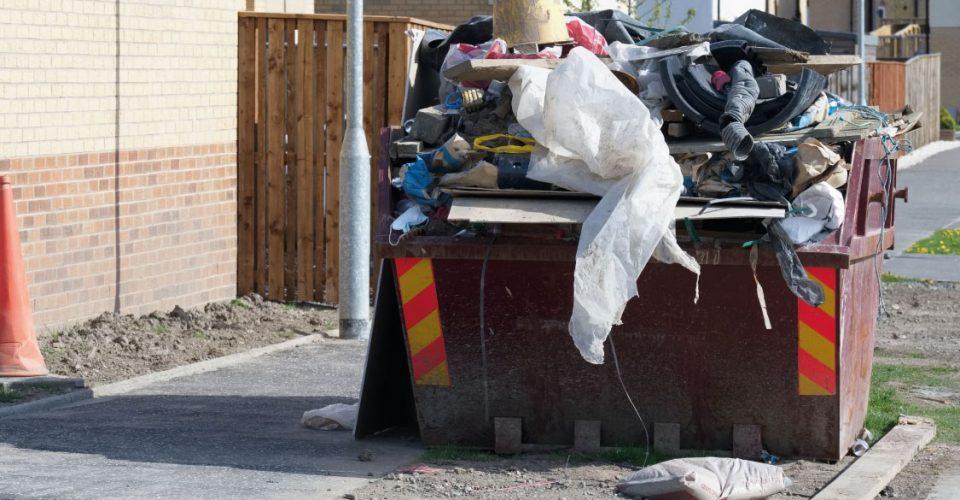The Risks of Overloading a Skip
Skip hire is often the most cost effective and efficient way to get rid of waste from building projects, house clearances, renovations or landscaping. Whether it’s a domestic or commercial project, skip hire allows you to collect all of your waste in one place to be taken away by a specialist waste management carrier.

When is a skip overloaded?
It is tempting to try and overload a skip as you reach the end of a project, often to save money and avoid hiring another. Waste should never exceed the height of the skip walls, most skips will have a thick red ‘fill line’, letting you know the maximum height waste can reach. The fill line is there to protect you, the public and waste operatives.
It’s easy to spot an overloaded skip, you’ve probably seen them yourself, with items hanging over the walls or perched on top of a mountain of waste that far exceeds the legal capacity.
What are the risks of overloading a skip?
The risks of overloading a skip are not just a factor when loading and transporting it for disposal, but are also an issue when the skip is waiting to be collected. If waste is overhanging the skip, someone could walk or drive into it. There is also a risk that overhanging waste could fall out. Waste falling from a skip is dangerous and can injure you or members of the public passing by, the latter even more so if your skip is on the road. It can also cause damage to vehicles and property, or cause an issue with blocking access.
Safety implications of overloading a skip
The safety implications of overloading a skip can be summarised as follows:
- Overhanging items can be a health and safety hazard to the public, yourself or skip hire staff.
- Items over the fill line could fall from the skip at any time, including during loading or transport.
- An overloaded skip can exceed the maximum operating weight of a truck, making it dangerous, or even impossible to transport.
Legal implications of overloading a skip
There are also legal and financial implications for overloading a skip:
- You may be fined for an overloaded skip.
- You risk legal action if someone is injured by items falling from or sticking out of an overloaded skip.
- Carriers can refuse to remove and transport an overloaded skip. Items in the skip would need to be rearranged to bring the level of waste under the fill line, or another skip would have to be hired.
How to avoid overloading a skip
To avoid overloading a skip, be methodical to make the most of the available space right from the start. It takes a few extra moments but can save you time and money in the long run. Think of it like a giant game of Tetris, filling the space efficiently will mean you have space for more items.
- Start with building the walls and sides up.
- Then place lightweight and flat items at the bottom of the skip to establish a base.
- Pile in layers; a heavy layer will compress lighter items beneath it.
- Break items into smaller pieces before putting them into the skip.
- Use smaller objects to fill gaps between larger objects.
When thinking about skip hire, make sure you hire the right size skip for your project. It’s always more economical to have a slightly larger skip, than it is to order a second one when the first is too full.
There are also certain things you can’t put in a skip, so make sure you discuss these with you skip supplier before you put them in.

